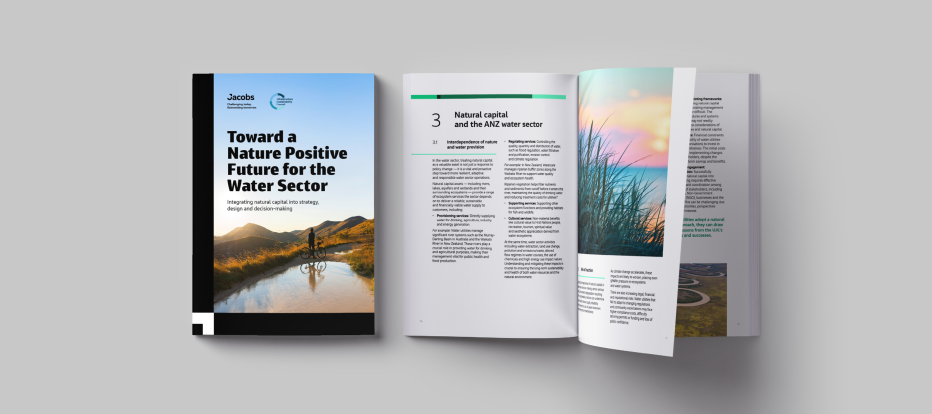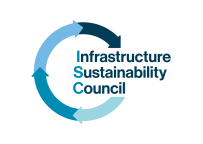
In today's world, embracing nature isn't just a choice — it's a necessity.
As biodiversity loss from climate change and human activities accelerates, we must weave nature into every decision we make. Around 50% of Australia and New Zealand’s (ANZ) national gross domestic product depends on it.
In the water sector, treating natural capital as a valuable asset is both a business imperative and a vital step toward more resilient, adaptive and responsible operations.
This paper explores how a natural capital approach that − framing nature as a core business asset − helps water utilities make informed decisions, manage environmental risks and enhance sustainability. It shares lessons from the U.K.’s policy and practice landscape and offers specific recommendations for water utilities in ANZ.
Lessons from the U.K.
As water utilities adopt a natural capital approach, they can learn from the U.K.’s challenges and successes. The U.K. has led efforts since 2012 to use natural capital as a tool for biodiversity and environmental outcomes, supported by comprehensive policy and legislation.
Drawing on this experience, the paper highlights key insights for ANZ water utilities. These include:
- Incorporating ecosystem services into water resources planning and development decisions leads to positive outcomes for water management.
- Understanding the baseline of impact and dependency on nature is the first step for transitioning to nature positive future.
- Local context, including legislative frameworks, ecological characteristics, community dynamics and cultural values, influences how projects and initiatives are planned, managed and executed.
- By adopting a natural capital approach, public bodies and businesses can better identify, appraise, design and deliver projects and programs that serve their primary functions while also generating nature focused outcomes and co-benefits.
- Valuing natural capital can unlock new funding and partnership opportunities, particularly within the water sector.
Key recommendations
As climate change and biodiversity loss intensify, integrating nature into decision-making becomes essential. The paper recommends that utilities:
- Conduct comprehensive assessments of natural capital dependencies and impacts
- Foster cross-sector collaboration and partnerships
- Integrate indigenous knowledge
- Develop robust nature-positive strategies aligned with financial disclosures
By implementing these measures, water utilities in Australia and New Zealand can become champions of nature-positive development, supporting resilient water systems, healthier ecosystems and thriving communities for future generations.
“It has been our pleasure to partner with Jacobs to deliver this nature positive thought leadership paper for the water sector. This timely paper shares important international experience and supports capability building and increased action on natural capital valuation and reporting, nature-based solutions and regenerative practices.”
“I’m confident the insights and recommendations in this paper will serve as a valuable resource for water utilities striving to lead with purpose. Together, we can build a future where our operations do more than coexist with nature, but actively safeguard and preserve its wondrousness.”
About the authors

Prae Wongthong is a senior associate consultant in climate response and ESG, with more than a decade of experience spanning social science research, ecosystem management and climate adaptation. Her early career focused on socio-ecological assessments and sustainable coastal and marine resources planning across Asia, supporting nature conservation and community-based resource management. At Jacobs, Prae leads climate risk assessments for major transport, city and water infrastructure programs, working with clients to embed climate resilient and nature-based approaches into asset planning and delivery.
As the lead of Jacobs’ internal Nature Positive Community of Practice for the Asia Pacific region, Prae fosters cross-disciplinary collaboration to advance nature positive outcomes in infrastructure planning. Her work reflects a deep commitment to sustainability, collaboration and systems thinking—supporting clients to build infrastructure that is resilient, adaptive and aligned with nature-positive goals. Her expertise and experience, combined with her passion for nature, underpin her holistic approach to helping organizations move beyond compliance to embrace sustainability and resilience that delivers long-term value.
Connect with Prae

Emma Dade is a recognized sustainability leader across Australia and New Zealand, serving as technical director for sustainable development and ESG at Jacobs. With extensive experience across water, transport, cities, energy and resources, Emma drives the integration of sustainability and climate resilience into the planning and delivery of major infrastructure programs.
She is a key contributor to industry best practice, including her role on expert panels for sustainable transport infrastructure. In the water sector, Emma champions nature-based and sustainable approaches, helping utilities embed these principles into governance, strategy and delivery frameworks.
Emma’s strategic insight and systems thinking, combined with her deep understanding of sustainability drivers and enablers, make her a powerful advocate for nature-positive infrastructure. Her work supports clients in aligning with emerging disclosure frameworks and building infrastructure that is environmentally and socially responsible.
Connect with Emma

Valerie Robertson is a senior associate director of economics at Jacobs, with 18 years of experience specializing in environmental valuation, natural capital and social value. As a subject matter expert in environmental economics, she leads the development of economic appraisal frameworks that support sustainable infrastructure planning and nature-positive decision-making. Valerie has contributed to numerous natural capital and ecosystem services studies, including the Local Natural Capital Plan for the Oxford to Cambridge Growth Arc and a public benefits assessment of navigable rivers for the Environment Agency. She recently oversaw the creation of a natural capital baseline and accounting tool for Transport Scotland, covering 11,000 km of trunk roads—enabling the integration of natural capital thinking into transport infrastructure planning.
Her work in the water sector includes valuing environmental and social costs of water resource management schemes, and providing technical assurance on natural capital, biodiversity net gain and societal valuation for Water Resource Management Plans and reservoir programs. She currently advises Jacobs’ clients on adopting TNFD-aligned approaches to support resilient, nature-positive infrastructure outcomes.
Connect with Valerie
Meet our partner

The Infrastructure Sustainability Council (ISC) is a peak body dedicated to advancing sustainability in infrastructure and a better future for people and planet. We work collaboratively with industry across Australia and Aotearoa New Zealand.
As part of a comprehensive approach to managing assets’ sustainability performance, the IS Rating Scheme drives and rewards decisions and actions towards Nature Positive across the asset life cycle. Project specific outcomes and metrics from using IS rating tools help inform nature-related disclosures at a local level which can be aggregated at the organisational level.
The ISC has around 220 members and has certified over 415 rated assets valued at close to $390 billion from all infrastructure sectors – transport, communications, water, energy, waste, social and blue and green infrastructure.














































